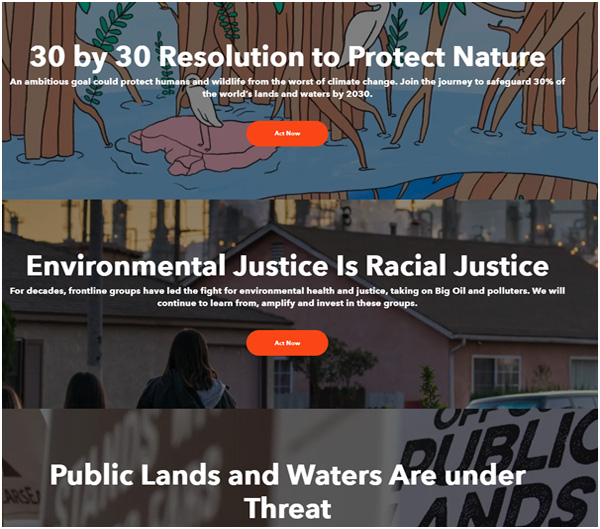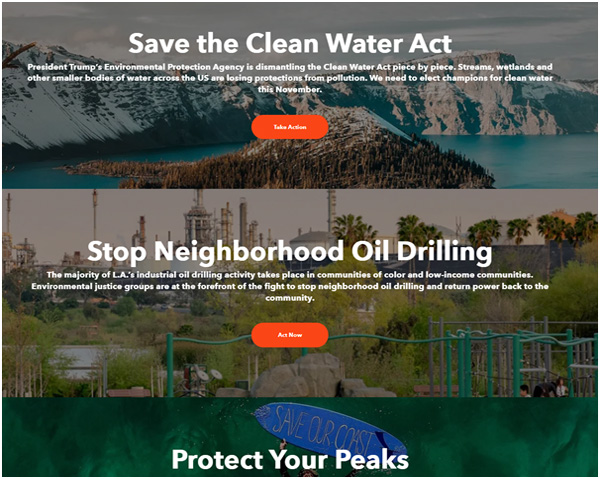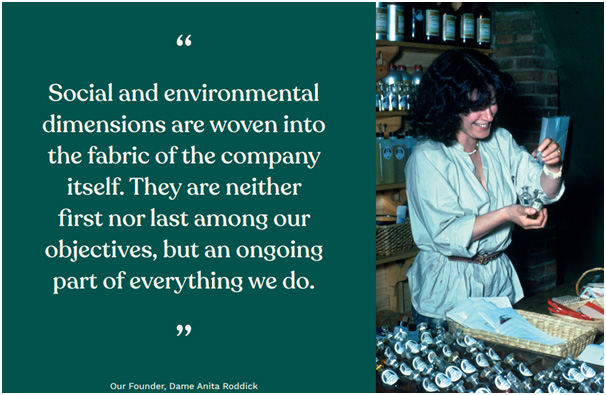- Tools
- Learn
- Help
Before you leave..
Why not download RevGlue latest free eguide.

We are seeing more influencers, content creators, brands and marketers spread awareness around social issues. This has increased substantially in recent years, whilst these campaigns have a big reach, sometimes it can have a negative reaction but most of the time, drive positive behaviour. In this article, we discuss why you as an Affiliate should care about creating content that facilitates positive impact over time. To quickly summarise, when you see an ad, that pauses you to think and reflect about a social issue, it is an example of marketing for good or social marketing. So what are the essential ingredients of social marketing and why should you care? Before we dive in, let’s encapsulate what social marketing means.
Content
How does this connect with an Affiliate’s brand or reputation?
So how can you support social issues via affiliate marketing?
Conclusion – Hold onto your ideals
What is social marketing?
Social marketing is a set of communications designed to create or make a positive impact in people’s lives, even if it does not directly benefit the brand or affiliate. It uses marketing concepts to drive positive change for the benefit of society. So, instead of selling a lifestyle or simply the affiliate product itself, you will focus on changing or removing bad behavior or promote a good one. For example, anti-drugs, human rights, anti-abuse, animal protection, child safety are some causes that have a set of communications.
Today, consumers are more invested in social issues, from environmental damage, poverty, inequality, racism and so forth, and they seek brands that share similar values. According to Sprout Social, 70% of consumers believes content creators, brands, affiliates and so forth, should take a stand on social issues. And this number only seems to be increasing.
Pantagonia – Speaking out on global warming
As an example,Pantagonia (an outdoor clothes company) donated £10 million to environmental programs, sharing their outrage of the consequences of human behavior on global warming and when left unabated it will cause enormous damage to our health, environment and economies in coming decades. This donation went towards communities or groups who are committed to protecting and finding solutions for global warming. They sent messages on their digital channels to raise awareness on this topic. Their website also lists campaigns they have taken a stance on and how audiences can help or be a part of the journey to solving issues. You can see this here: https://www.patagonia.com/actionworks/campaigns/


Focusing on social issues
Brands or Affiliates can also focus on the benefits to society for adding an affiliate product in their life, for example vehicles with sustainable energy fuel, or health products made with ethical and sustainable practices and so forth. And these are communicated in campaigns.
When Affiliates include people and the planet (known as the triple bottom line) as their mission in addition to making money, they think about serving consumers’ or audiences’ needs as well acting in the long-term best interests of society.
How does this connect with an Affiliate’s brand or reputation?
Your brand is not merely your personality, the logo or colour scheme but it transcends deeper. It is the core values you hold, the relationships you have with your audiences or followers, the memories you have created with them, and how you have made them feel. This has a massive influence on how they behave with your brand, and are likely to behave more favorably for brands that truly and genuinely focus on their higher purpose, or values.
However, whilst many brands are using social activism as a tactic to improve perceptions, so they can increase traffic or conversions, rather than it being a genuine belief, it can be seen as inauthentic especially if its just a set of statements. When an issue is genuinely cared about, people can see through it. This is why driving real change (real activisim) will help with credibility rather than showing support for whatever the fashionable cause is in that moment. Also, many consumers say a brand or influencers stance is believable when it is an issue that related to them or relevant to their field. You can find out social issues your audiences care about with social listening tools, to gain insights into what topics are important to them and how you can take meaningful action.
It's also important to note that global movements such as #BlackLivesMatter made such an impact, that when an influencer, publisher or a brand did not acknowledge it, it was detrimental to its reputation. So there are times, when it is expected to take a stand.
Ben and Jerry’s – Making a difference
Ben and Jerry’s is a different kind of corporation, it has ongoing activism and advocacy which make up a large part of its blueprint. That their objective is to sell ice creams to make progresses in social change. They align their team of social mission employees with their marketing team to regularly speak up about issues in an agile way, and so have been able to do this for events like #BlackLivesMatter swiftly and successfully.
As stated by their activism manager; “We must be willing to acknowledge the sins of our past so that we move together toward a future of justice and equity.” This is the kind of culture the brand breaths, its corporate social responsibility has never wavered no matter what changes the corporation went through.
However, cynics argue that is using ‘virtue signaling’ to garner press attention, yet, what’s not realised is that they use their digital channels to promote its social-justice mission and activisim which runs deep (and has been acted on) and have done so consistently- this makes it an authentic social justice ice cream brand. Which goes back to our earlier message, when you market without actions, you are likely to be accused of hypocrisy. They are able to not look like preachers either, which some brands end up doing. They use humour to help engage change. Often using their packaging to speak about messages.

They have seen strong growth, as fans are aware of their social mission activities, and so they more ice cream as a result. And the fact that their believes or social mission are printed onto their packaging, makes them more credible as a result.
Why you should care
More and more followers, fans and consumers look for brands that share the same social values, and with their power online, because of their large presence, they are able to make a bigger impact. This is what allows affiliates, publishers, influencers to choose to do what’s right whilst building trust at the same time. The more social responsible the company is, the more supportive their community or followers become, which helps expand the visibility of the brand. Some of the ways in which you can do this successfully is:
There are so many ways to make a positive impact on the world, and these pro-social efforts should be shared. Altruism is also very fulfilling, and something that no amount of money can achieve that feeling.
So how can you support social issues via affiliate marketing?
Charities and non-profit organisations are easiest to find to help support a social cause, however, more brands are becoming activists in their own right, where they establish themselves as thought leaders in spreading awareness in social issues. The social causes you decide to support, will depend on your values and your ideologies. You can promote affiliate fundraising campaigns and share these with your followers, you can tell them why you’re supporting them and the impact it will have by donating to these. You can also use profit from affiliate link purchases to support campaigns or groups. This is something that you can be transparent about, so shoppers feel rewarded for buying from you.
If you decide to go with a charity affiliate program, you can get commissions for donations you bring in. You need do this in two ways;
Start a fundraising charity cashback website
You can start a fundraising charity cashback website where customers have access to different stores to shop from. With the cashback they can donate to their preferred charities which is where you’ll get commissions. So this fund can be added to the charities’ account, which they can withdraw from. One example, is the Al Ajr charity cashback site which our team of developers and designers had created together. It’s purpose, is that it turns everyday shopping into free cashback donations for your cause or charity at no extra cost.
Join charity affiliate programmes
Charitable giving is broad, and covers many areas. There are many charity affiliate programmes to join, where they sell items to raise funds or simply ask for donations to help with specific causes. Here we share some charity affiliate programmes you can join and earn money:
CARE international’s mission is to end worldwide hunger. It has more than 1,300 poverty-fighting initiatives and humanitarian aid projects. For every donation you raise, you’ll get a 6.4% cut from the total amount. The cookie duration is 30 days.
This long, established charity works on a range of initiatives, to help poor have all necessary resources to live long and healthy. They use 85% of their revenue to help people. This programme can be found on Awin, and it offers a generous 10% commission. The cookie duration is also 30 days.
This charity helps homeless people on the streets with food and shelter, as well as work on projects to make a difference on climate change. The cookie duration is 45 days and the commission rates are high. This is managed on CJ Affiliate.
For inspiration, social marketing campaigns be looked at to give you ideas on how to creatively talk about an issue, whilst making a strong connection with the audiences. To make sure you don’t get backlash when raising social issues, make sure you do your social listening, whether that’s monitoring and learning from conversions in forums and communities online, or conducting polls or questionnaires to understand how to angle your communications and make it fit with their beliefs and your brand.
A brand with social conscious – Body Shop
Consumer demand for ethically produced products has intensified, however skincare brand, Body Shop is no stranger to this and therefore, they always seen a healthy profit. They have been committed since day 1 to ensure their products are not harming anyone in the process, this is guided by their philosophy “Enrich not Exploit”. They’rededicated to saving rainforests in many way, ensure all of their natural ingredients are traceable and sustainably sourced, reducing their packaging and their environmental footprint where possible. You can see their latest corporate socially responsible report here. With these values present in many areas of their operations, culture and practices, they have amassed a strong lifelong loyal customers.

Conclusion – Hold on to your ideals
One thing we advise is, to stay true to your values. It is about using activism to push for change on wider issues bigger than yourself, what you and your audience believe in deep down and are passionate about. Will you stick to this, when you are driving commissions for affiliate campaigns – will some of these be oriented towards groups that help with those causes?
So use your channels for good, or networks to start a discussion about an important subject, or urge your fans to also contribute in making a difference.